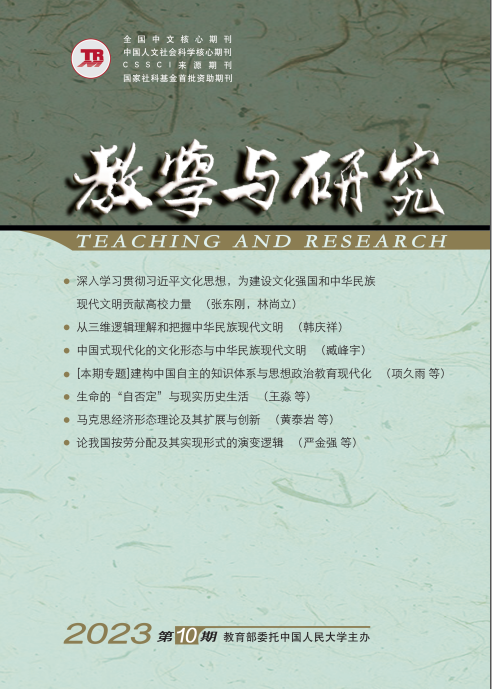Modernization is a historical narrative, and the modernization of Ideological and Political Education is a historical narrative that defines its development direction, examines its development status, grasps its development requirements, and inquires about its development trends. A systematic understanding of the meaning and ways of this narrative can be approached from four perspectives: time, space, subject, and law. The modernization of Ideological and Political Education has its own temporal characteristics, which are compatible with the construction process of socialist civilization and the modern civilization of the Chinese nation, and are in line with the constantly developing socialist ideological demands and ideological value expectations. The modernization of Ideological and Political Education is carried out in a specific spatial field, which carries specific values, ideas, and culture. It is necessary to focus on the spatial transformation driven by modernization and create a spatial carrier of Ideological and Political Education with modern characteristics. The modernization of Ideological and Political Education embodies the unity conforming to both regularity and purposiveness. On the one hand, it highlights the historical initiative of educators, and internally requires the formation of a modern subject pattern of education for all; on the other hand, its regularity is reflected in the integrated law of vertical articulation and horizontal alignment, the collaborative law of the education system and social system, the development law of knowledge, belief, and action, and the transformation law of toplevel design and flexible implementation.



